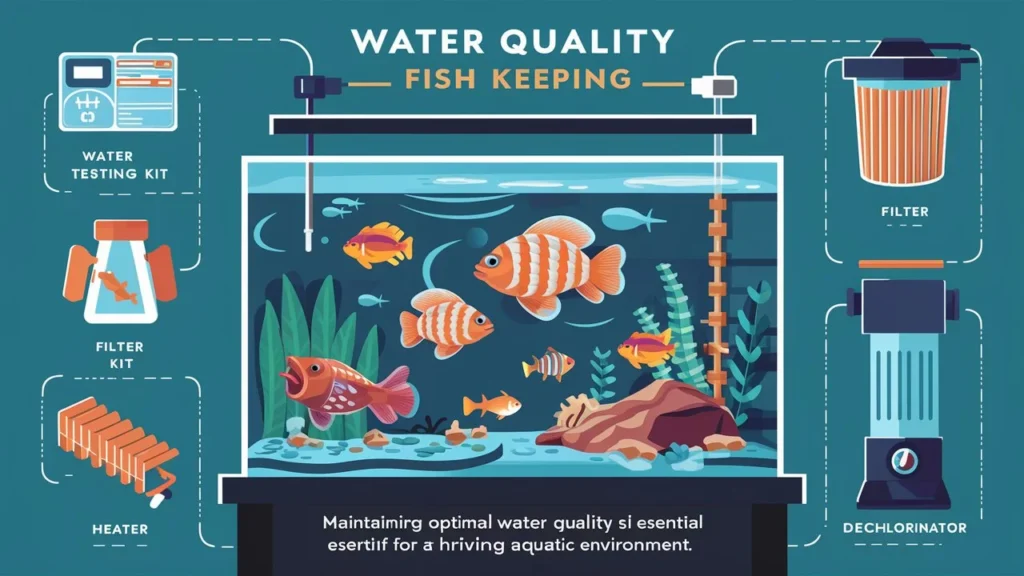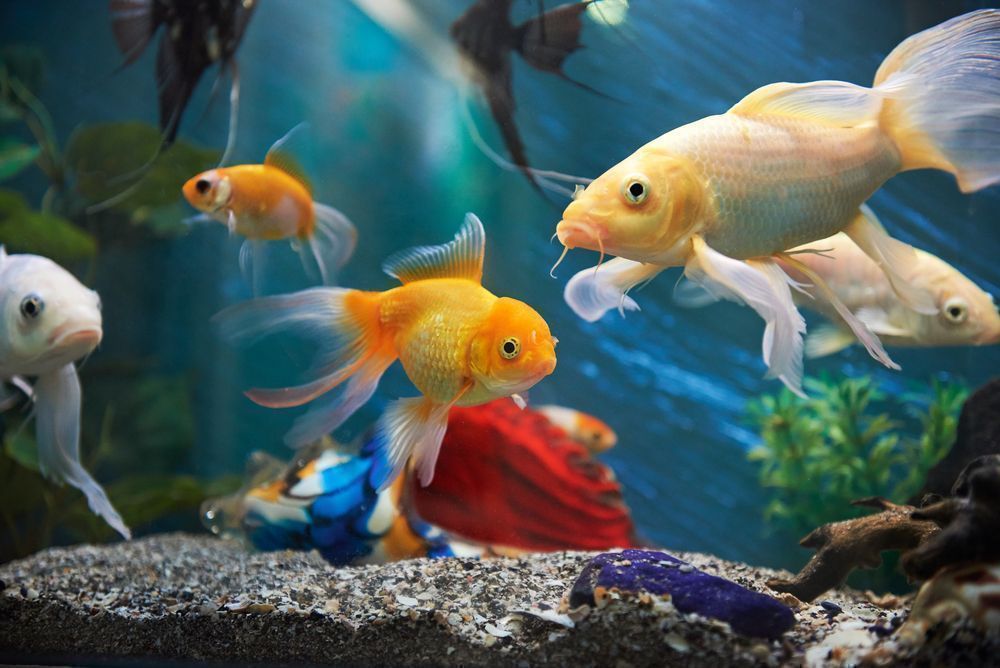“Water is the driving force of all nature.” — Leonardo da Vinci
In the realm of Feng Shui, the quality of water in fish tanks is paramount to maintaining positive Qi, the vital life force that flows through our surroundings. Ensuring pristine water conditions is not only essential for the health of the fish but also for fostering a harmonious and prosperous environment. Studies have shown that poor water quality can lead to stress in fish, which in turn disrupts the balance of Qi in your living space. Therefore, understanding and maintaining optimal water conditions is crucial for anyone serious about incorporating Feng Shui principles into their home or office.
The Importance of Water Quality in Feng Shui Fish Tanks
Enhancing Positive Qi
Water quality directly impacts the flow of positive Qi. Clear, clean water symbolizes purity and clarity of thought, which are key elements in creating a balanced and tranquil environment. Stagnant or dirty water can block the flow of Qi, leading to negative energy and potential health issues for both the fish and the occupants of the space.

Health of the Fish
Fish are highly sensitive to their environment. Poor water conditions can lead to diseases, stress, and a reduced lifespan. Healthy, active fish contribute to the dynamic flow of Qi, symbolizing vitality and prosperity. Regular monitoring and maintenance of water quality ensure that the fish thrive, thus enhancing the overall positive energy in the space.
Key Factors in Maintaining Water Quality
pH Levels
The pH level of the water is crucial for the well-being of the fish. Most freshwater fish thrive in a pH range of 6.8 to 7.5. Regular testing with a pH kit can help maintain this balance. Sudden changes in pH can be harmful, so any adjustments should be made gradually.
Filtration Systems
A good filtration system is the backbone of a healthy Feng Shui fish tank. Filters help remove debris, excess food, and waste, maintaining clear water and preventing the buildup of harmful chemicals like ammonia and nitrites. A combination of mechanical, chemical, and biological filtration ensures comprehensive water purification.

Regular Water Changes
Consistent water changes are essential to remove toxins and replenish essential minerals. Aim to change 10-15% of the tank’s water weekly. Use dechlorinated water to avoid introducing harmful chemicals into the tank. Regular water changes help maintain stable water conditions, which are crucial for both the fish and the flow of positive Qi.
Temperature Control
Most tropical fish require a stable temperature range between 75°F and 80°F. Sudden temperature fluctuations can cause stress and disease. Use a reliable aquarium heater and thermometer to monitor and maintain the appropriate temperature.
Practical Tips for Maintaining Optimal Water Quality
Test Kits and Monitoring
Invest in reliable water test kits to regularly monitor pH, ammonia, nitrite, and nitrate levels. Keeping a log of water parameters helps identify any changes early and take corrective actions promptly.

Avoid Overfeeding
Overfeeding is a common mistake that leads to excess waste and poor water quality. Feed the fish only what they can consume in a few minutes and remove any uneaten food promptly. This practice prevents the buildup of toxins and helps maintain clean water.
Beneficial Bacteria
Introducing beneficial bacteria to the tank aids in breaking down waste products. These bacteria convert harmful ammonia into less toxic nitrites and nitrates. Products containing live bacteria cultures can be added to the filter media to boost biological filtration.
Addressing Common Challenges
Algae Growth
Algae can quickly turn a pristine tank into an unsightly mess. Control algae growth by regulating light exposure, avoiding overfeeding, and maintaining a proper cleaning schedule. Algae-eating fish or snails can also help keep algae under control naturally.

Water Cloudiness
Cloudy water is often a sign of an imbalance. This can be caused by overfeeding, inadequate filtration, or a new tank setup. Address the root cause by improving filtration, performing partial water changes, and reducing feeding amounts.
Chemical Imbalances
Chemical imbalances, such as high ammonia or nitrite levels, are detrimental to fish health. Use water conditioners and beneficial bacteria supplements to neutralize toxins and stabilize the water chemistry.
Achieving optimal water quality in Feng Shui fish tanks is a harmonious blend of science and art. By maintaining clean and balanced water conditions, you not only ensure the health and vitality of your fish but also enhance the flow of positive Qi in your space. Remember, the key to a thriving Feng Shui fish tank lies in regular maintenance, mindful monitoring, and a genuine care for the well-being of your aquatic friends.





















